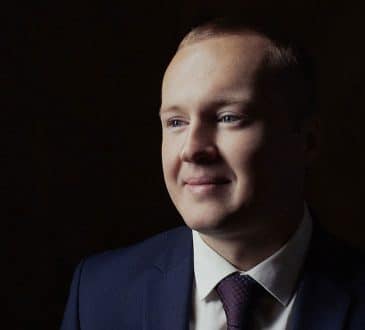Acquire Internal Locus of Control to Excel as a CEO

When you want to achieve success in all spheres of life, you must have an internal locus of control. Internal locus of control is all about taking responsibility for success, and external locus of control is all about blaming the external events, forces, and factors for failures. Internal locus is about taking action and responsibility for the consequences.
It is about making things happen and walking the talk. When you look at CEOs, they possess an internal locus of control because they take responsibility for their actions. It is rightly said that it is the bad tradesmen who blame their tools, and it is the good tradesmen who avail what they have and work within the constraints to achieve the desired outcomes.
“If someone asks me a question, ‘What is it you see when you look out the window that is visible but not yet seen by others’ I will answer, ‘I see a world filled with people with a huge potential lying untapped. If I can identify their strengths and inspire them to unlock their potential, I feel that I have made a difference in the world.’” —Professor M.S. Rao.
The concept of ‘locus of control’ was coined by Julian B. Rotter in 1954. Rotter describes the internal locus of control as: ‘the degree to which persons expect that reinforcement or an outcome of their behavior is contingent on their behavior or personal characteristics.’
Internals versus Externals
Individuals with an internal locus of control emphasize ideas for issues. They strongly believe in exploring ideas for annoying issues. They believe in pluck, not luck. They take responsibility for their actions. They don’t blame the external environment for their failures. They reconcile to the external environment and realign their strategies to accomplish their objectives. They believe in creating their destiny, instead of leaving their fate to destiny. They are extraordinary achievers and history makers.
Internals are independent, self-motivated, troubleshooters, problem solvers, and creative, and can handle complex information. They are optimistic, confident, achievement-oriented, health-conscious, and responsible for their actions. Internals are inquisitive and ambitious individuals with the determination to create their destinies. They work hard and persevere to make things fall into place. Above all, they are leaders who take responsibility in case of failures and spread fame in case of successes.
Internals believe that there is always a bend at the end of the road. They are optimistic and see light at the end of the tunnel. They see the silver lining over the dark cloud. They enjoy the rising sun, not the setting sun.
An internal orientation usually needs to be matched by competence, self-efficacy, and opportunity so that the person can successfully experience a sense of personal control and responsibility. Overly internal people who lack competence, efficacy, and opportunity can become neurotic, anxious, and depressed. In other words, internals must have a realistic sense of their circle of influence to experience “success.”
Internals appear to be arrogant. They often control a lot. They will have autocratic tendencies with an autocratic leadership mindset. The people around them will not be comfortable working with them. Here is how you can convert from an external to an internal: believe in yourself, develop persistence, avoid complaining, criticizing and condemning others, stop talking and start taking responsibilities, and change your perceptions to resolve issues.
Successful People versus Unsuccessful People
Successful people and unsuccessful people undergo several challenges. Their road is beset with tremendous doubt, fear, volatility, uncertainty, complexity, ambiguity, and struggles. Successful people respond to their environment proactively and align their strategies from time to time to accomplish their goals. They take continuous feedback and reconcile to the realities and realign their strategies accordingly. They pursue their journey with perseverance. In contrast, the unsuccessful people blame the external environment and react negatively, and finally give up their journey towards success. To conclude, acquire an internal locus of control to make things happen to create your destiny and to grow as a CEO.
Have you read?
World’s Safest Cities.
World’s Most Economically Influential Cities.
World’s Best Cities For Luxury Shopping.
World’s Best Cities For Millennials.
Bring the best of the CEOWORLD magazine's global journalism to audiences in the United States and around the world. - Add CEOWORLD magazine to your Google News feed.
Follow CEOWORLD magazine headlines on: Google News, LinkedIn, Twitter, and Facebook.
Copyright 2025 The CEOWORLD magazine. All rights reserved. This material (and any extract from it) must not be copied, redistributed or placed on any website, without CEOWORLD magazine' prior written consent. For media queries, please contact: info@ceoworld.biz








